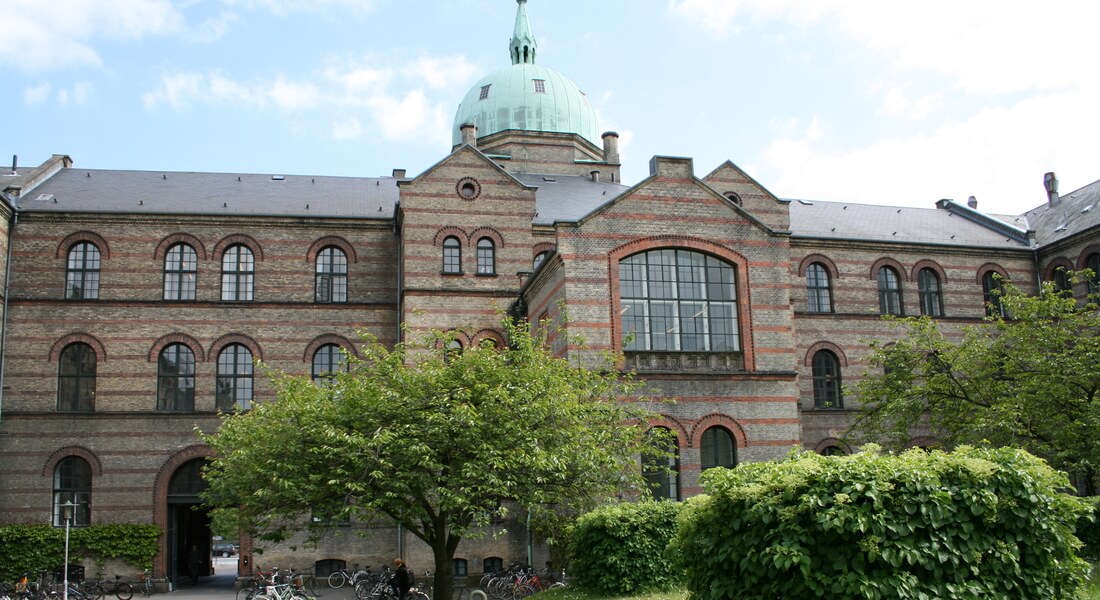
Ida Marie Lind Glavind forsvarer sin ph.d.-afhandling ved Institut for Antropologi
Kandidat
Ida Marie Lind Glavind, Institut for Antropologi, Københavns universitet
Titel
Loss and Belonging
Life with Alzheimer's Disease in Denmark
PhD projektet er en erhvervsphd lavet i samarbejde med Alzheimerforeningen.
Vejledere
- Lektor Hanne Overgaard Mogensen, Institut for Antropologi, Københavns Universitet
- Ane Eckermann, Alzheimerforeningen
Bedømmelseskomité
- Lektor Helle Samuelsen, Københavns Universitet (formand)
- Lektor Kristine Krause, University of Amsterdam
- Professor Douglas Hollan, University of California, Los Angeles
Tid og sted
Torsdag d. 12. januar 2023, kl. 14:00
Københavns Universitet, Det Samfundsvidenskabelige Fakultet,
Gothersgade 140, 1123 København K, Auditorium 1.
Vær opmærksom på, at forsvaret foregår på engelsk.
Reception: Efter forsvaret afholder instituttet en reception i Etnografisk Eksploratorium, lokale 4.1.12.
Zoom
Topic: PhD Defence - Ida Marie Lind Glavind
Time: 12 Januar 2023, 02:00 PM Copenhagen
|
One tap mobile: |
Denmark: +4532701206,,67744622310#,,,,*572087# or +4532713157,,67744622310#,,,,*572087# |
|
Meeting URL: |
https://ucph-ku.zoom.us/j/67744622310?pwd=UUVERkp6VXZiTDk1bGhKZzJFZTg0Zz09 |
|
Meeting ID: |
677 4462 2310 |
|
Passcode: |
572087 |
|
Join by Telephone |
|
|
For higher quality, dial a number based on your current location. |
|
|
Dial: |
|
|
Meeting ID: |
677 4462 2310 |
|
Passcode: |
572087 |
|
Join from an H.323/SIP room system |
|
|
H.323: |
109.105.112.236 |
|
Meeting ID: |
677 4462 2310 |
|
Passcode: |
572087 |
|
SIP: |
|
|
Passcode: |
572087 |
Resumé (på engelsk)
In this article-based dissertation, I explore how Alzheimer’s disease affects the social lives of people living with the diagnosis through aspects of loss and belonging. From 2019 to 2021, I conducted a total of twelve months of ethnographic fieldwork in Denmark among people with Alzheimer’s and their family members. The fieldwork covered 2.5 years, allowing me to follow how their social life became affected as their disease developed from early to middle/late stages with each research participant.
In a medical sense, Alzheimer’s is described as a degenerative disease, undergoing progressive, irreversible cognitive and physical losses, eventually leading to premature death. From a broader social and cultural perspective, the degenerative perspective also plays a central role: media, policymakers, and family members portray people with dementia as decaying individuals, as empty shells, not fully human, not fully alive. Meanwhile, the experience of those all of this truly concerns – that is, people with dementia – are often forgotten, even in research.
In this dissertation, I argue that there is something here we lose sight of if our sole understanding of dementia is through aspects of loss, decay, and death and if we forget to take into account the lifeworld of the patient. Observing how the social life of people with Alzheimer’s unfolds allowed me to look beyond this prevailing degenerative narrative on dementia. I saw that despite their cognitive losses, the ability to belong for people with Alzheimer’s remained, though in changed ways. I, therefore, argue that loss and belonging are not two opposite poles in life with dementia. Instead, they are entangled as two sides of the same coin.
Loss and belonging are themes in the dissertation’s three articles: Art. I (co-authored with Hanne Mogensen) explores people with Alzheimer’s changing ability to express themselves verbally. Stories become difficult to tell, and the experience of being understood is challenged. By proposing that we go along with their fragile stories, paying attention to how understanding is based on so much more than just the words exchanged, we learn new ways of communicating. Art. II describes the changing sense of time that makes people with Alzheimer’s fall out of sync with the rhythm and pace of their surroundings. This causes conflicts, and I argue that the loss of time is not a subjective loss, but rather an intersubjective loss. However, people with dementia also show us new ways of being in time, where presence is more important than punctuality. Art. III advances a concept of social prognosis, referring to how newly diagnosed fear being perceived as socially dead after disclosing their dementia diagnosis. Seeking to sustain social recognition, many vacillate between revelation and concealment. Following the aftermath of disclosure, the article shows that people with Alzheimer’s do not, in fact, experience social death: while they do experience estrangement and marginalization, they also experience continuing care.
From this, I argue that dementia should not only be understood as degenerative – it can also be seen as a generative disease. Generative in the sense that dementia generates new ways of being together, and new ways to create and sustain belonging, teaching us other ways to communicate, to be in time, and to maintain social recognition.
